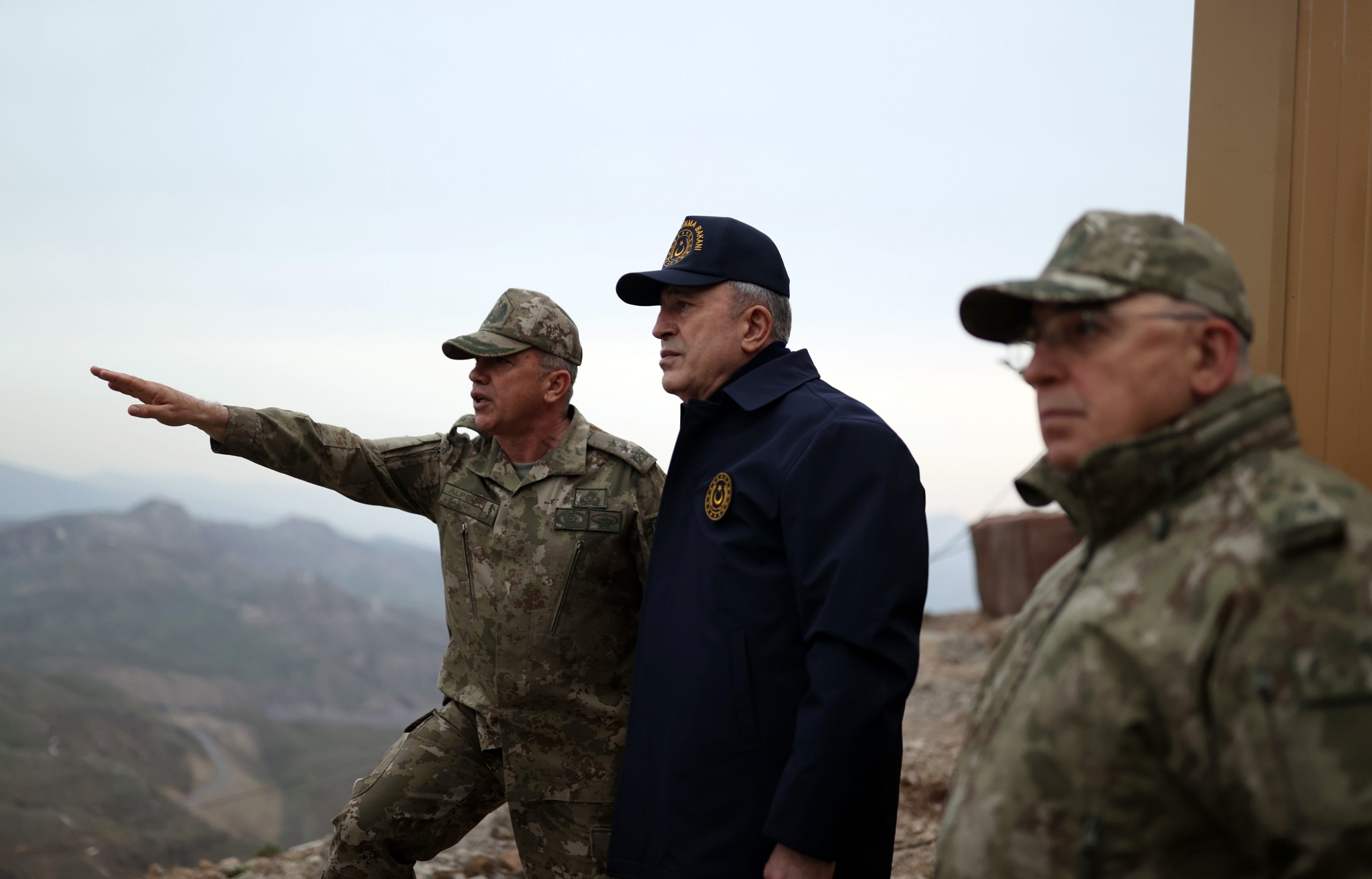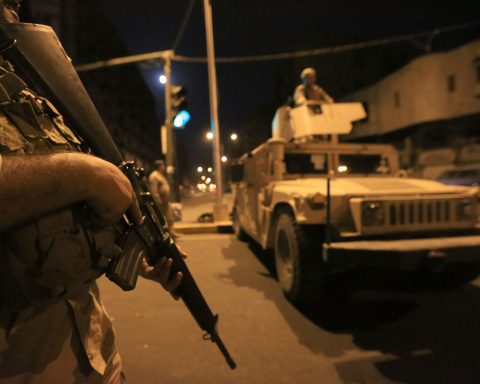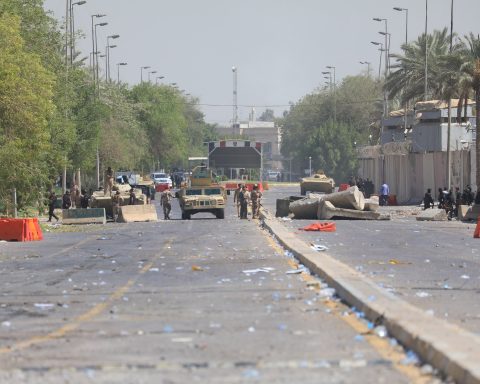The current Turkish military operation in northern Iraq represents an advanced stage in the series of operations that began in May 2019, and aims to eliminate the threat of the Kurdistan Workers’ Party (PKK) coming from areas in Iraq where this terrorist group has taken.
Ankara launched its current military operation, Operation Claw-Lock, which, as its name indicates, is the culmination of the field gains made by Operation Claw in May 2019, Operation Eagle Claw in June 2020, and Operation Eagle Claw 2 in January 2021. The aim of the new military operation is to close the southern border region of Turkey to prevent the infiltration of PKK elements and eliminate its bases in the areas under its control, especially in Matina, Zab and Afshin – Bassian.
According to Turkish Defense Minister Hulusi Akar, his country’s forces took control of all the planned targets and neutralized large numbers of terrorists, referring to the use of helicopters, reconnaissance planes, and local “Atak” helicopters to support the commando forces. in their wild operations. The Turkish military operation is still going on, as the rugged geography of the area requires the search and survey operations to continue for a longer period to prevent the return of PKK elements to the area.
This operation cannot be separated from Turkey’s long efforts to thwart the PKK’s plans to strike its security from locations in Iraq. The terrorist group was stationed in the eighties of the last century in the Qandil Mountains located in the Iraqi-Iranian-Turkish border triangle, but the PKK benefited from the political conflicts in Iraq and the security vacuum that appeared with the emergence of ISIS. Then, it was defeated while trying to expand its areas of presence, as it settled in the regions of northern Iraq, most notably Sinjar and the border areas with Syria and Turkey, as well as in the Kurdish-controlled areas in the northeast of the country. Meanwhile, in Syria, the so-called Syrian Democratic Forces, which is an extension of the PKK, enjoys American support, which provides it with opportunities for armament, financial funding, and work more comfortably by transitioning seamlessly across the border between Iraq and Syria.
Security and political challenges
The expansion of the PKK and its control over areas in Iraq imposed serious security risks on Turkey, which dealt with this issue through several operations in Syria and Iraq. By supporting the PKK and its allies, various interests were aimed to be achieved, which were mostly to fight ISIS, but the main goal was to use the PKK as a means to pressure Turkey to achieve political goals.
The nature and details of the PKK’s presence in Iraq confirm this conclusion. The PKK has spread to various regions in northern Iraq since 2013, but it has been mainly stationed in the Sinjar region, west of Mosul, since 2015, with the strategic Sinjar Mountains having taken a fortified military position. The PKK took advantage of Iraq’s security vacuum and the widening political conflict in the country to expand and strengthen its presence in the region. It also benefited from the alliance of the Yazidi militias with it, some of them from the Popular Mobilization Forces, which pushed the PKK to control the Sinjar district, to the point of preventing government forces from entering it, and even preventing the implementation of an agreement between Baghdad and Erbil for the entry of Iraqi forces into the city, in October 2020.
The PKK still controls the city and has strengthened its positions in the Sinjar Mountains by digging tunnels that complicate its elimination, and continues to smuggle people, weapons, cattle, and money on a large scale, getting huge economic returns as a result.
Before that, during the nearly two decades of PKK activity in the northern regions of Iraq, the party controlled hundreds of villages in the border regions of northern Iraq, and displaced the majority of the population of over 500 Kurds and Assyrians, according to a report issued last January by a committee assigned by the Kurdistan Regional Parliament to follow up the humanitarian file in those areas.
For both the Iraqi central government and the Kurdish Regional Government of Iraq (KRG), the presence of the PKK is a real security problem, and officials in Baghdad and Erbil constantly demand that the party’s elements leave Iraqi territory, but it has ignored these demands and even carried out armed attacks, which have caused dozens of deaths among the Iraqi and the Peshmerga forces. The PKK is accused of being responsible for disrupting development processes in the KRG and Sinjar, sabotaging the agricultural economy, and preventing the return of tens of thousands of Iraqis to their villages and cities, including about 125,000 Sinjar residents who still live in camps in Dohuk Governorate.
Common security problem
These factors make the PKK a common security problem for both Iraq and Turkey, and this has led to a well-known understanding between the two countries dating back to the 1990s that allows Turkish forces to chase the PKK into Iraqi territory. However, this agreement was concluded in circumstances where the PKK was deployed to a limited extent. The PKK was originally in the Qandil Mountains before its spread expanded deep into Iraqi territory and its threat became greater for both countries.
The presence of the PKK deep in Iraqi territory, and its military relations with armed militias, is a prominent result of the failure of the Iraqi government to stop the expansion of the PKK, and expel it from Iraqi territory. Despite this, many statements were issued in Iraq, including official government positions criticizing the recent Turkish operation, and considering it a violation of sovereignty. But what can be noted here are two things. First, the position of the Iraqi government was issued in the context of the media escalation on the issue of sovereignty taken by political parties and militias close to Iran, and this position was expected in light of the harmony of these forces with the PKK, seen with the financial and legal support for the Yazidi militias, most notably the Sinjar Resistance Units (YBS). The reality of the ongoing political differences since the last elections in October 2021 prompted other political forces, as well as the Iraqi government, to take similar positions, without any position having any practical effect, and without the government or critical parties offering any position. A lack of vision to implement the role of the Iraqi authorities in expelling and preventing the PKK from threatening a neighboring country, which is Turkey, is also present.
The second thing is that the Iraqi government took advantage of the Turkish military operation to push the Iraqi army into Sinjar, and it engaged in armed confrontations with the PKK and the YBS. However, the elements of this party are still holed up in Mount Sinjar, and it is not yet clear what the Iraqi government can do to completely eliminate their presence, and improve the security environment for both Iraq and Turkey. It is expected that the process of expelling the PKK from the Sinjar Mountains will be difficult and long due to its rugged geographical nature and its vast area, as it rises to more than 1,400 meters and extends for about 100 kilometers, and is associated with the province of Hasakeh in Syria, and this provides the PKK with a refuge. For some time, Iran exploited the PKK’s efforts for survival, in order to secure a land route to Syria on the one hand and use this matter to put pressure on Turkey in many other areas of conflicting interests between the two countries.
For Turkey, Operation Claw-Lock represents the development of a mechanism to eliminate the PKK, or at least prevent it from achieving its main objective of harming Turkey’s security. Turkish efforts may continue or be strengthened in the future to ensure this. But, it must be emphasized that ending the presence of the PKK in Sinjar and other areas in northern Iraq is one of the duties of the Iraqi government, and Baghdad must work to purge its territory of the PKK terrorist organization, in cooperation with Turkey, and ensure the cessation of external or internal support for it.














